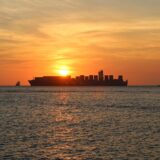Philippine DOE finds high methanol content in E10 gasoline
The Philippine Department of Energy (DOE) revealed that five percent of the gasoline stations it inspected last month in Metro Manila and the provinces of Cavite, Rizal, Batangas and Quezon had higher than allowable methanol content in E10 gasoline.
The DOE’s Oil Industry Management Bureau said it had inspected a total of 924 gasoline stations and found that 46 were in violation. Three of the 46 gasoline stations belong to oil majors, 18 to independent oil companies and 25 are so-called “white stations,” which only have one to five oil retail outlets.
“We have to protect our consumers from buying and using adulterated petroleum products, hence we are conducting onsite inspections,” DOE Secretary Alfonso G. Cusi said. “We cannot allow the oil players, especially illegal peddlers, to shortchange our people by selling them adulterated petroleum products.”
The Philippine National Standards (PNS)/DOE QS 007:2014 standard for Bioethanol (E100) limits the methanol content in E100 at 0.5% per volume or 0.05% per volume in E10. By law, gasoline stations are required to sell gasoline blended with 10% ethanol in the Philippines.
“We are strictly monitoring the components of biofuels, because we have specific standards for them. As a blend to raw gasoline products, E10 has a very minimal methanol content, because it is inherent to the fuel but it is not intentionally blended,” Cusi said. “Oil companies cannot use the methanol component in E10 as their leeway to replace ethanol with methanol in their products, because that’s a different scenario already,” Cusi said.
In September, the Independent Philippine Petroleum Companies Association (IPPCA) raised concerns over methanol blending in gasoline products, high levels of which can potentially harm engines.
Since methanol is not a regulated substance, regulatory bodies such as the Philippine Drug Enforcement Agency, the Department of Environment and Natural Resources and the Philippine National Police, do not monitor its importation and sale.





.png)




